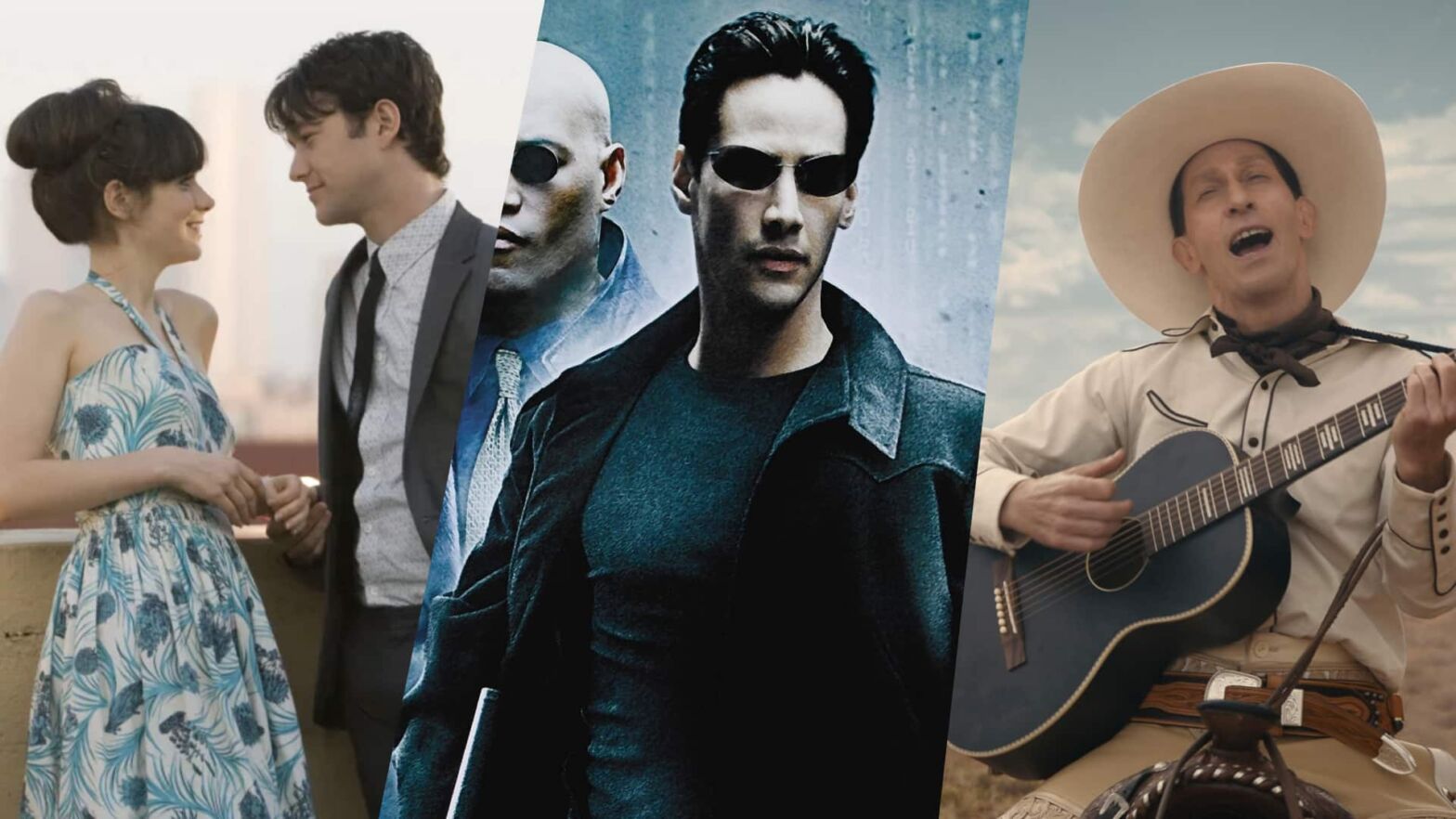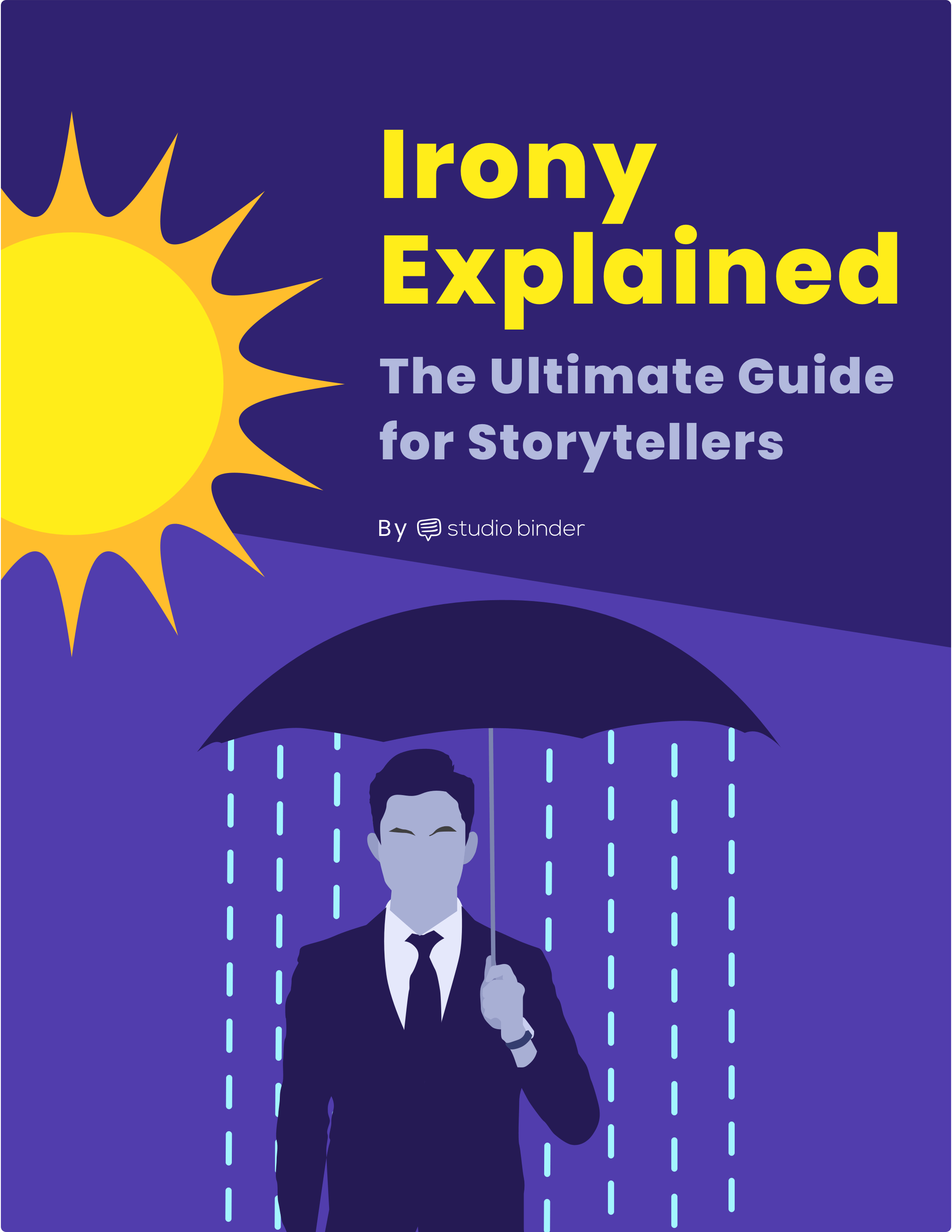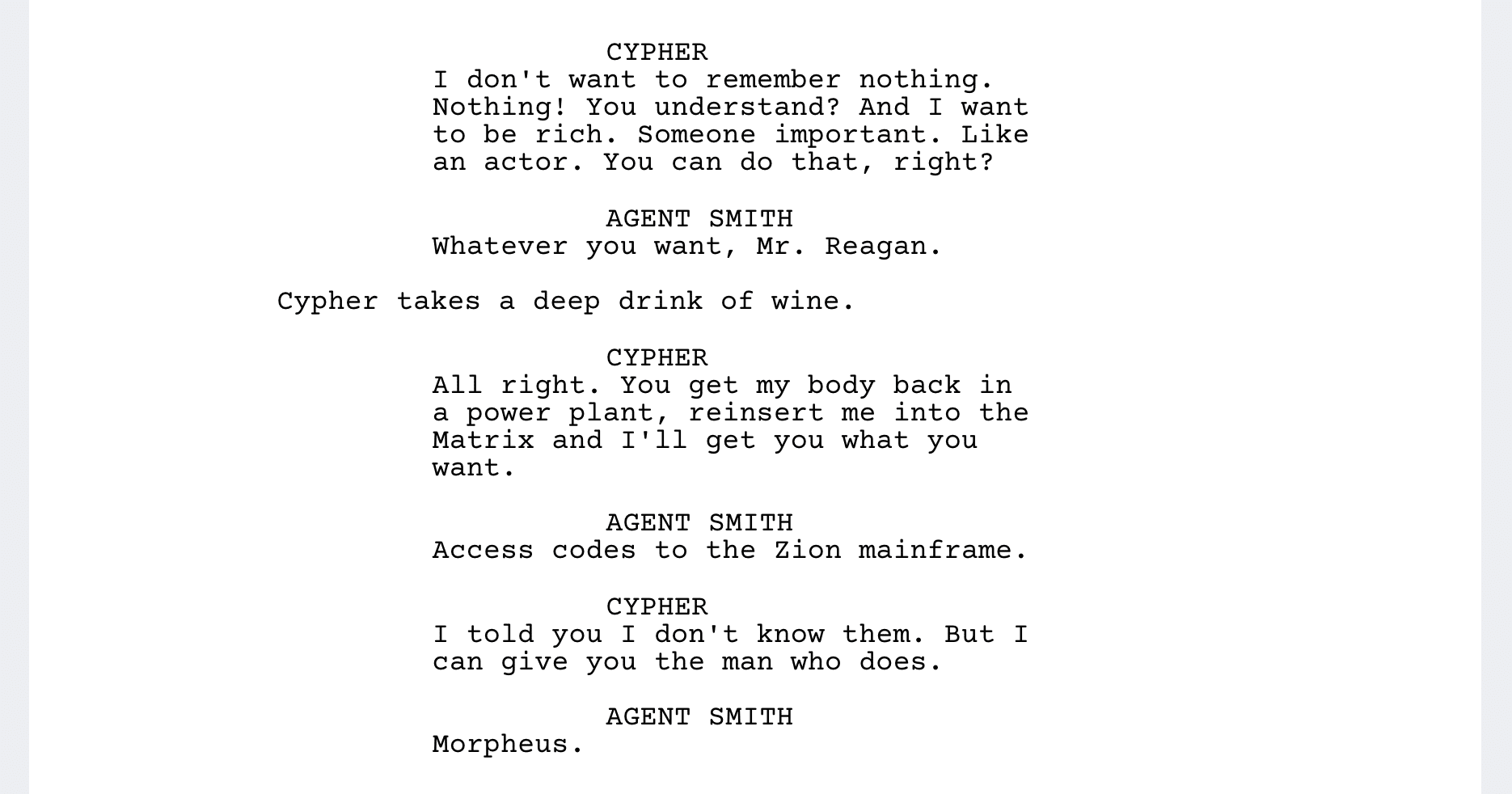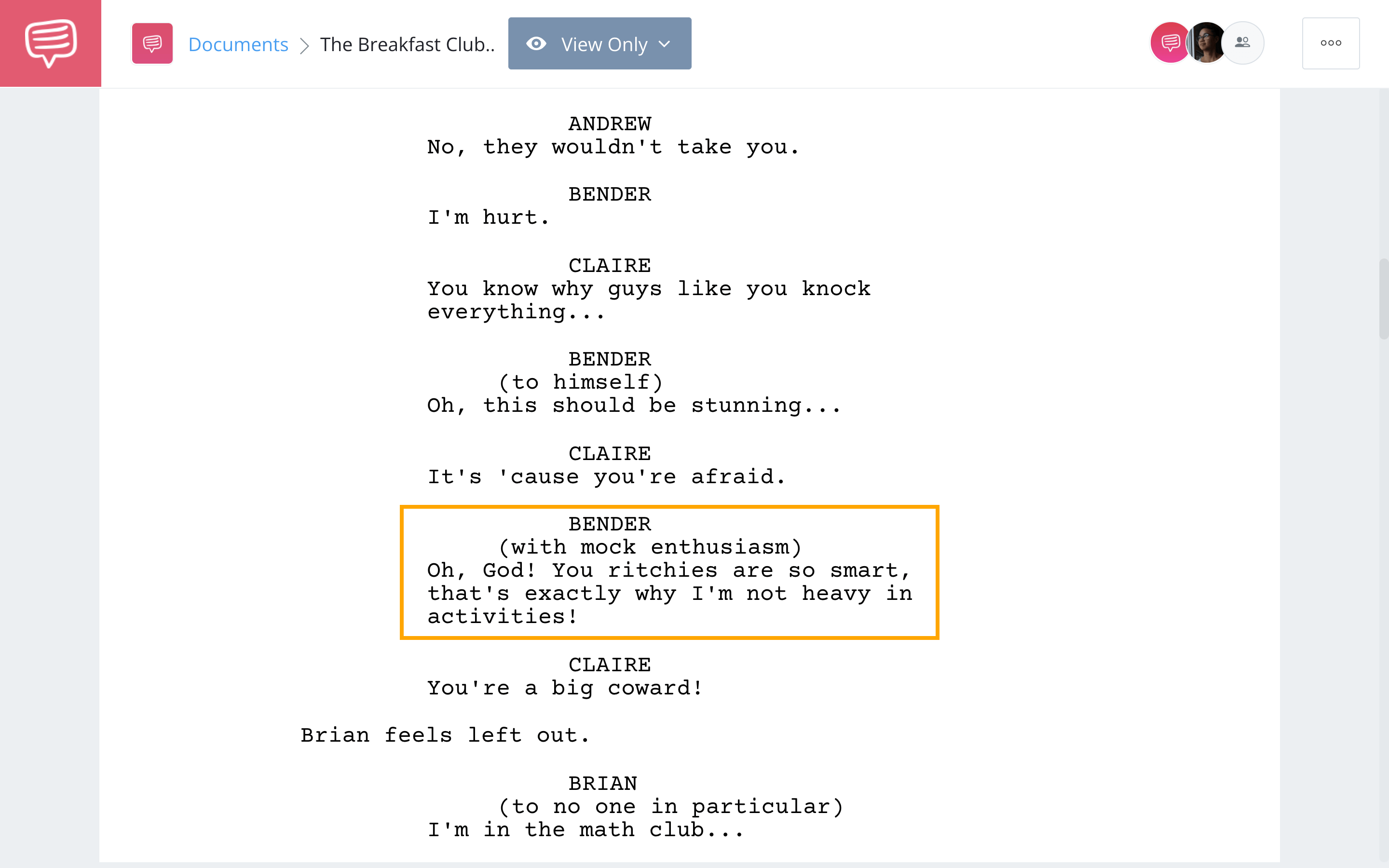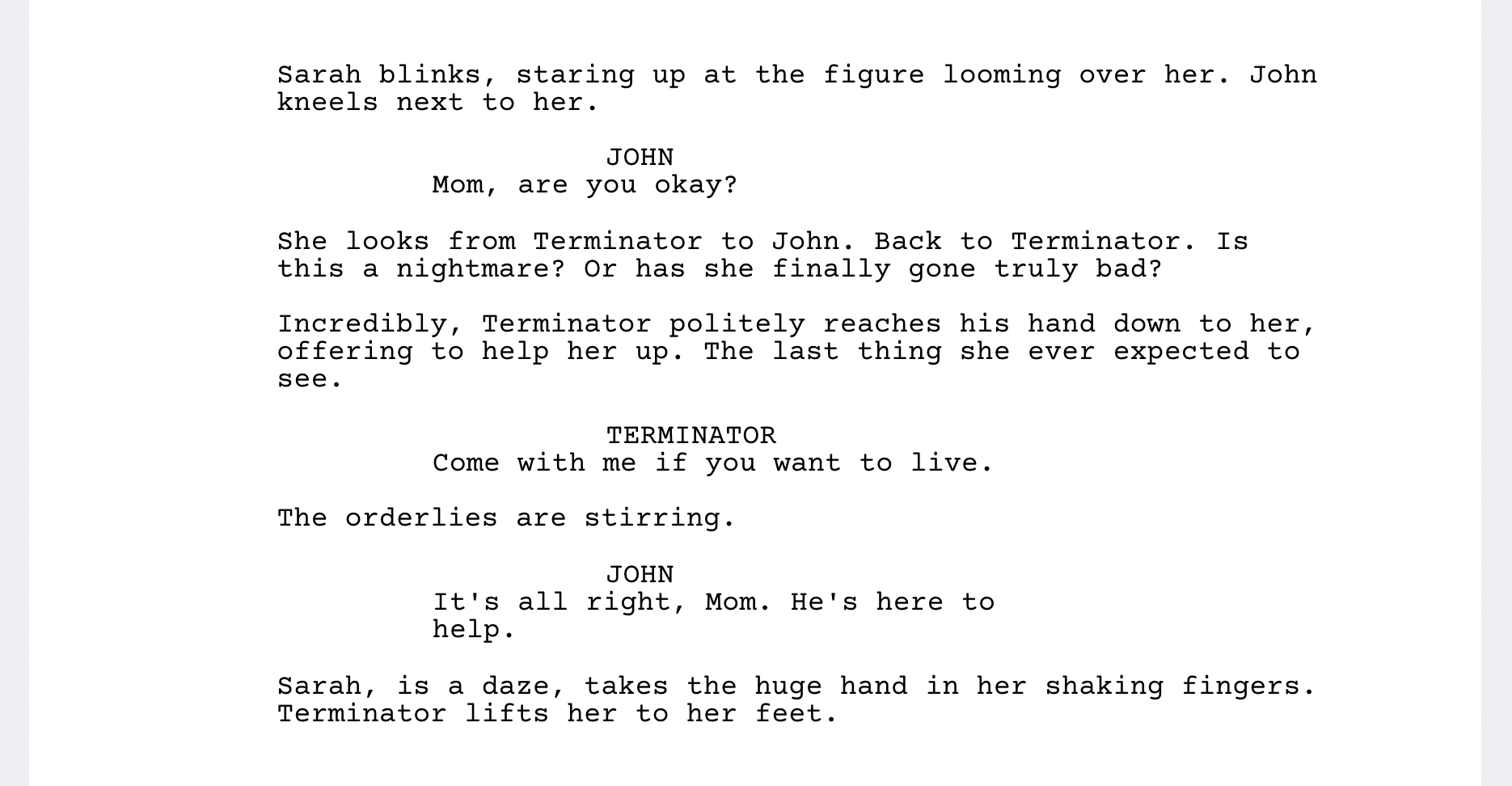We encounter irony every day: in our favorite movies, TV shows, and in our own lives. Most people have a general understanding of irony but there are also a lot of misconceptions about it. For example, were you aware that there are 3 different types of irony?
In this article, we’re going to define irony in all its variations. Whether you’re writing a short story or a screenplay, irony can be a powerful storytelling tool. You’ll be able to recognize the different types of irony and understand how they work. The next step is to carry this understanding straight into your next writing project.
Ironic Meaning
Meaning of irony in literature
Irony is fundamental in storytelling.
Irony is the opposite of expectation. When what we expect to happen doesn’t happen, it creates conflict.
If we know the truth about a dangerous situation and we watch someone else get close to that danger, it creates suspense.
When someone says one thing but means another, it creates complexity.
All of these elements (conflict, suspense, complexity) are fundamental building blocks in storytelling. You don’t need to be an expert on irony to be a good storyteller. But it sure helps. Let’s define irony before we move on to the various types of irony.
Irony Definition
What is irony?
Irony is a literary device in which the reality is opposite of what we expect. The key here is "opposite," not just different. This incongruity can be found in language (what we say vs. what we mean) or circumstances (what we expect to happen vs. what actually happens).
What are the three types of irony?
- Dramatic irony
- Verbal irony
- Situational irony
Irony can be sad and tragic, or it can funny and satirical. In other words, there are limitless ways you can wield irony in your stories.
There are 3 different types of irony: dramatic irony, verbal irony, and situational irony. Each has a different definition and function in storytelling.
For a complete guide to irony, download our FREE ebook covering the types of irony, examples, and how writers wield it.
Free downloadable bonus
FREE Download
Ultimate Guide to Irony
Irony is an essential literary device that all writers should master. Download our FREE e-book to get in-depth explanations and examples on topics like the major types and sub-types of irony, and the myriad of ways writers can use it to enrich their storytelling.
Let’s move on to some quick definitions of these main types along with a few subtypes or irony that provide even more complexity and depth to ironic storytelling.
Different Types of Irony: Dramatic
What is dramatic irony?
Dramatic irony is when we have more information about the circumstances than a character.
Ex. When you know there's a killer shark in the ocean but the carefree beach goers have no idea they're being hunted.
That is dramatic irony.
SPOILER ALERT for The Matrix.
Neo and his crew are betrayed by one of their own. If we had learned of this at the moment of betrayal, we certainly would have been shocked.
But because we learn about it before any of the other characters, we have a nice, juicy piece of dramatic irony.
Here's the scene as it was written in the screenplay. Follow the image link to read the entire scene using StudioBinder's screenwriting software.
Read the full scene here
So, as with any dramatic irony example, the question becomes why do you let the audience know the truth before the characters do? Wouldn't it be shocking to see Cypher betray his people? We would be just as confused and panicked as Neo and the others.
Of course, this is a subjective question: which method is best for the story? But here's an argument for why dramatic irony works best in this particular scenario. Sometimes when you get a major character turn like this, it can feel "unearned," like it came out of nowhere to be shocking for its own sake. This way, by letting us know well in advance of Cypher's intentions, it doesn't feel like such a "cheat."
Here's the scene that shows the actual betrayal and its consequences.
Types of Irony: Dramatic Irony example
Within dramatic irony, there is only one subtype: tragic irony. The difference between these two types of irony is slight but it’s an important distinction to make. Basically, tragic irony is dramatic irony with tragic consequences — it's as easy as that.
There are also distinct stages of dramatic irony, or the order of operations when deploying dramatic irony. Dramatic irony needs to be introduced, it needs to develop over time, and it needs to be released. To successfully incorporate dramatic irony, these stages are essential.
Learn more about dramatic irony →
Verbal Irony Definition
What is verbal irony?
Verbal irony is when someone says something, but means the opposite.
Ex. When you get an "F" on your term paper and say, "Wow, I did a really good job on my term paper!"
That is verbal irony.
In The Breakfast Club, Bender (Judd Nelson) is know for his sharp tongue. He is constantly providing quips, insults, jokes, mockery and, of course, verbal irony. Consider this scene when discussing why he isn't more involved in extracurricular activities (starting around 1:30 in this clip).
Pay attention to his responses and the clearly ironic tone he uses to deliver likes like, "Well, I'll just run right out and join the wrestling team!"
Types of Irony: Verbal irony example
Here's the scene as it was written in the screenplay. His line, "Oh, God! You ritchies are so smart, that's exactly why I'm not heavy in activities!" is a great example of verbal irony. Again, we are clued into his irony mostly through his delivery and performance, leaving no doubt that he doesn't mean what he says.
Follow the image link to read the entire scene in StudioBinder.
Read the full scene here
Within this verbal irony general definition, there are 4 types of verbal irony:
Each one brings a particular element so understanding which one to use and for what purpose is essential. You can find links to each of these in navigation at the bottom of the page.
Learn more about verbal irony →
Situational Irony Definition
What is situational irony?
Situational irony is when we expect one thing, but get the opposite.
Ex. To avoid rain on your wedding day, you choose a desert that hasn't seen rain in 100 years...and then it starts raining.
That is situational irony.
A really great example of situational irony comes in Terminator 2: Judgment Day. Sarah Connor is attempting to break out of a mental institution when she encounters the same Terminator that was out to kill her in the first film.
The irony here — this time, the Terminator is there to protect her.
Types of Irony: Situational irony example
Not only is this a great example of situational irony, it's also a clever and intriguing way to make a sequel. James Cameron knew that he couldn't just have the same killer robot chasing the same people a second time. That's just one reason why T2 is one of the best sequels ever made.
Here's the scene as it was written in the screenplay. Follow the image link to read the entire scene in StudioBinder.
Read the full scene here
Within this general definition, there are 4 subtypes of situational irony:
Each one brings a particular element so understanding which one to use and for what purpose is essential. You can find links to each of these in navigation at the bottom of the page.
Learn more about situational irony →
Benefits of Using Irony
Why use irony?
Irony is born when “what seems to be” is different from “what is.” This contrast between expectation and reality is what makes irony such a rich device to use in storytelling.
Irony adds a layer of complexity and richness to the conflict. Now there is depth to your story that might not have been there before.
Writers use conflict to tell stories and irony to make better stories.
UP NEXT
Dive deeper into irony
We've covered the basics on the 3 types of irony but there is so much more to learn. If there is a particular form of irony you want to explore further, just follow the navigation below. Each one of these subtypes of irony belongs in every writer's toolkit.
